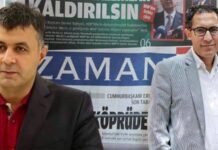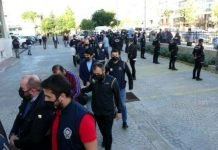Turkey’s justice ministry announced in a statement on Thursday that the coronavirus vaccine rollout in prisons had commenced amid criticism of the inability of jailed writer and journalist Ahmet Altan to receive a vaccination.
Altan’s lawyer and daughter both complained on Thursday that he had not been given access to an inoculation despite being 71 years old.
Altan’s daughter Sanem said her father has failed to get a response to his efforts to get vaccinated against the coronavirus despite the fact that he is among the priority groups designated by the health ministry.
“Although he submitted a petition [to the prison administration] for the [coronavirus] vaccine, he failed to get a response. It appears there are no vaccines for Silivri. Does anyone have an answer for this?” she tweeted, referring to Silivri Prison in İstanbul where her father and most of Turkey’s political prisoners are jailed.
Inmates aged over 65 and those suffering from chronic disease will receive the vaccine first, the justice ministry’s statement said. According to health ministry data, Ankara began a vaccination campaign on January 14, and more than 5.4 million people had received at least one dose of the vaccine as of today. More than 1 million of the vaccine recipients have been offered a second dose.
Altan was arrested shortly after a July 2016 coup attempt in Turkey. He was initially sentenced to life imprisonment in February 2018 for alleged links to Gülen movement, a faith-based group accused by the Turkish government of masterminding the coup attempt. The movement strongly denies any involvement in the abortive putsch.
According to the justice ministry statement, 240 inmates are currently suffering from COVID-19, and two of them are in intensive care.
The Turkish parliament passed an early parole law on April 14, 2020 aimed at reducing the inmate population of the country’s overcrowded prisons due to the coronavirus pandemic.
The legislation, which excludes political prisoners such as politicians, journalists, lawyers, academics and human rights defenders convicted under the country’s controversial counterterrorism laws, prompted calls from human rights groups, the UN and the EU for the non-discriminatory reduction of prison populations.
Although most of the seriously ill patients have forensic and medical reports deeming them unfit to remain in prison, they are not released. Authorities refuse to free them on the grounds that they pose a potential danger to society.
















